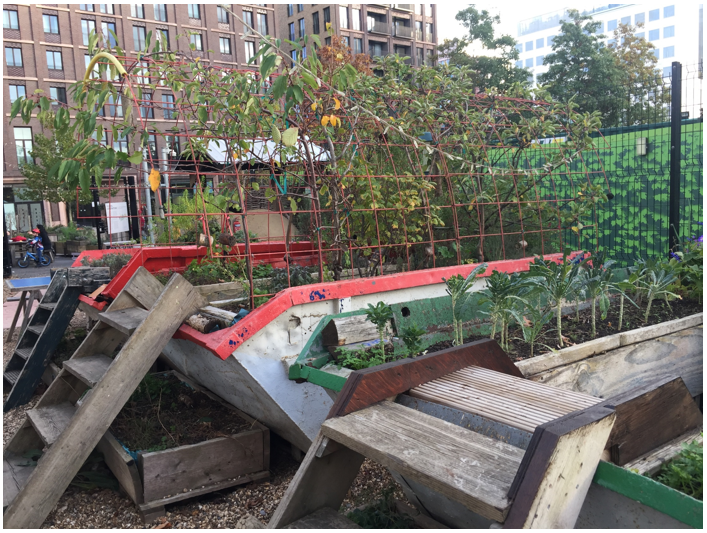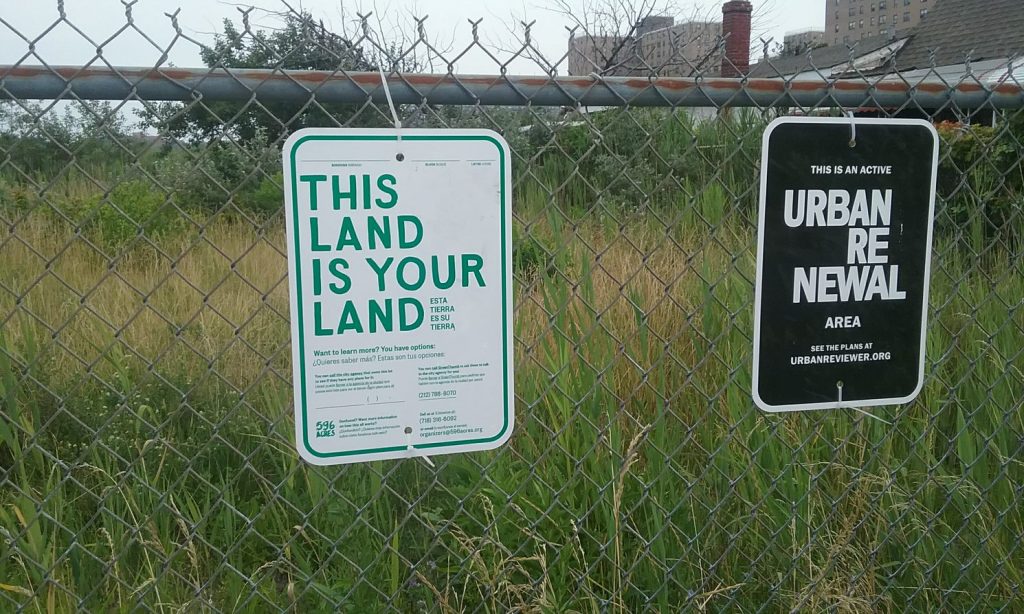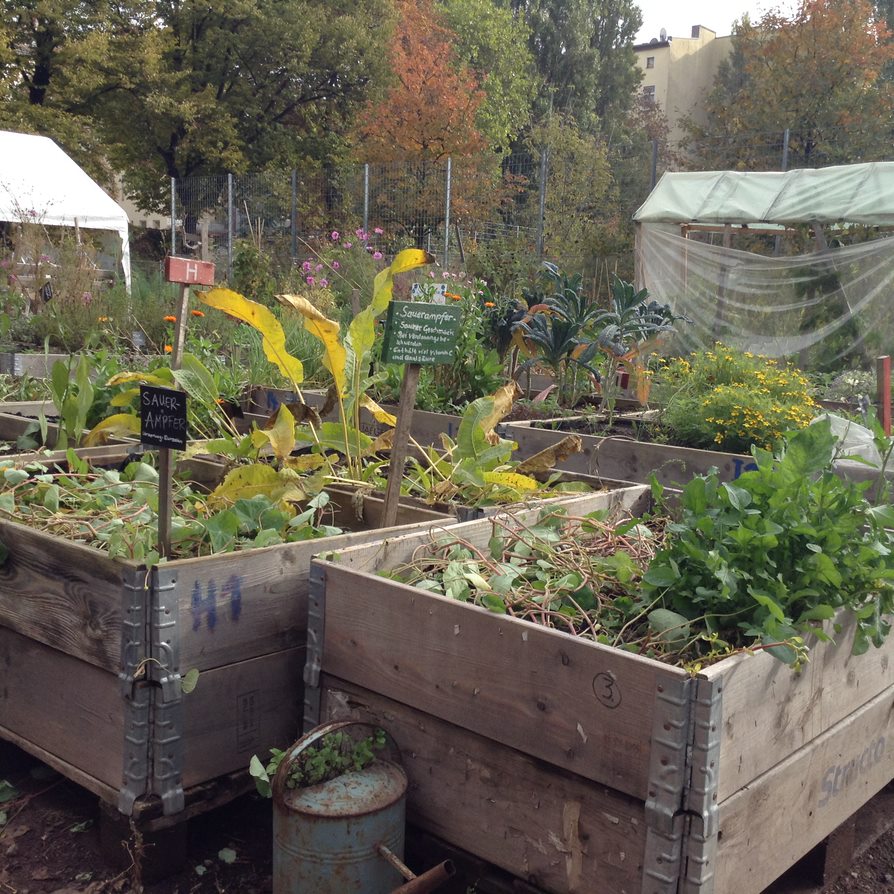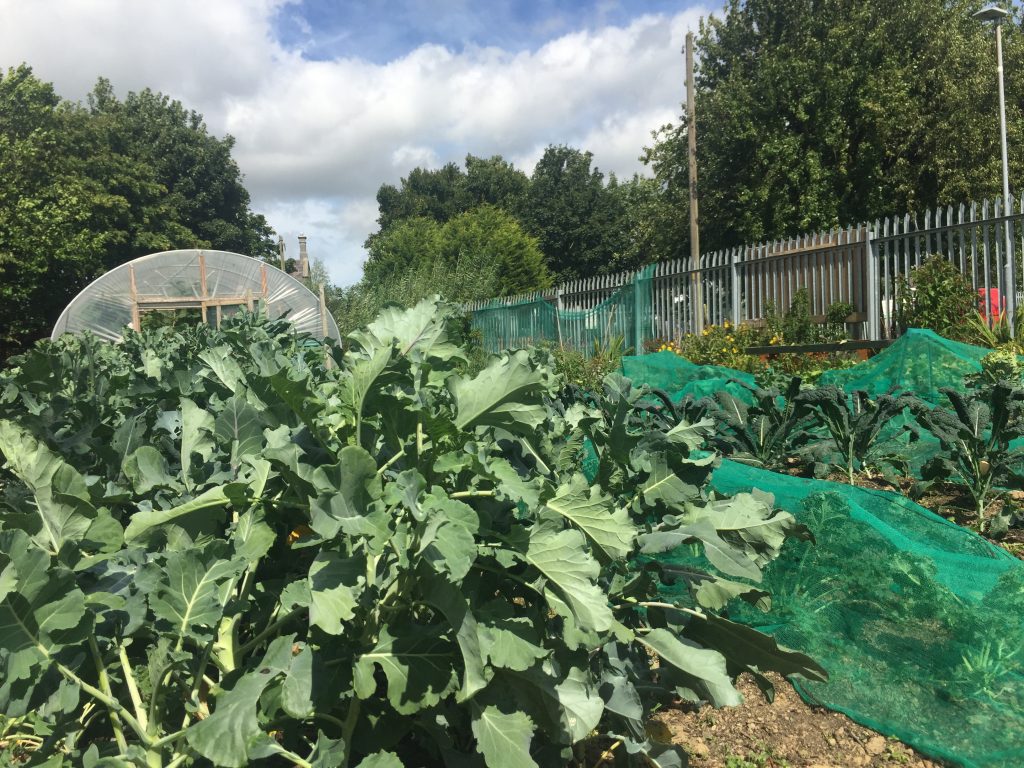Investigating the role of shared urban growing initiatives for achieving SDG11
Published by SHARECITY on the 6th November 2018.

Equal access to open green space is one of the key target goals under SDG 11 for transforming cities onto more sustainable pathways. Urban green space provides a range of ecosystem goods and services such as reduced air pollution and improved temperature regulation. Recently, research has uncovered additional health and well-being benefits of green spaces, particularly within urban environments, where it has been shown that just passing by green spaces can help to reduce stress, heartrate and blood pressure. In addition, research indicates that the perception of crime as well as actual crime rates are lower in neighbourhoods with access to green and open spaces. What’s more, green space can also provide a physical site for enhanced human interactions particularly through shared and collaborative practices often seen in community gardens or edible parks. These spaces of interaction have been shown to combat social dislocation and loneliness in urban environments.
As part of the SHARECITY project we are identifying, mapping, analysing and assessing the practices and sustainability potential that spaces for shared growing in urban environments provide. We are focusing on those practices of shared growing that use some form of ICT to mediate their activities and seeing what difference those technologies make to the practices and impacts of sharing. We have mapped these across 100 urban spaces globally and you can interact with them through our SHARECITY100 Database. This database was used to identify a suite of case studies in nine cities for in-depth examination with researchers spending many months in the field immersed in the activities of thirty-eight food sharing initiatives. Shared growing activities comprise a third of our sample and include a range of innovative approaches to urban sustainability challenges.
596 Acre s from New York, Unites States and 3000 Acres from Melbourne, Australia, for example, seek to optimise the use of vacant land for communal growing activities. Both initiatives identify and map unused land using online tools and then provide support citizen groups to develop them into community gardens.
s from New York, Unites States and 3000 Acres from Melbourne, Australia, for example, seek to optimise the use of vacant land for communal growing activities. Both initiatives identify and map unused land using online tools and then provide support citizen groups to develop them into community gardens.
Other growing initiatives in the SHARECITY100 database, such as The Skip Garden and Kitchen in London, UK and Himmelbeet in Berlin, Germany, focus on creating inclusive intercultural gardens within which people can come together to share land, seeds, plants, food, compost, tools, kitchen space, knowledge, and meals through gifting and selling.
Himmelbeet is an intercultural food sharing initiative, which started in 2013. Currently, the community garden is located on vacant space in Wedding, a neighbourhood with one of Berlin’s highest unemployment rates of 26%. Himmelbeet’s main target goal is ‘The good life for all. Not more but also not less.’ The initiative enables access to healthy food and education, for some of Berlin’s inhabitants for whom this turns out to be more difficult. One of Himmelbeet’s current projects is the development of a book on gardening that is accessible to everyone, written in easy language. The ‘TUML Buch’ is composed in a collaborative manner with a diverse group working together to develop the content, but also to provide space for knowledge exchange and friendships to develop. All outputs from the process are documented online and provided for free for others to use.
However, it is not always plain sailing for such community enterprises. Later in 2018, Himmelbeet’s license to operate will cease and the land will be leased instead to a soccer organization for deprived youth, which will develop a sports and education initiative on the site where the garden currently resides. Despite trying to find a mutually agreeable compromise for the past three years Himmelbeet will now have to find a new vacant space for their activities. As a community garden they receive little protection from the state for their activities because they are not classified as a park, a school or a sports centre which have explicit teams within the local authority to plan and management developments.
Another growing initiative listed on the SHARECITY100 Database which facilitates equal access to green space here in Ireland is the Muck and Magic community garden (MaM) in Ballymun, a suburb north of Dublin city centre.
A local volunteer group based in Ballymun, Dublin started MaM as part of the Ballymun Regeneration Plan in 2011. MaM is based on a piece of land which is owned by the Dublin City Council and lease to the initiative on an annual basis. The garden operates with the help of local volunteers and gardeners from the surrounding neighbourhoods. Amongst them are members from a local day centre for adults with special needs as well as a group that attends the garden from a local drugs rehabilitation project.
Over the course of seven years, the garden, which started with four raised beds for vegetable growing, now incorporates a garden shed, poly tunnel and a series of composts. The area is also covered by ornamental trees and harbours an insect hotel. In addition, MaM has a wormery and makes its own leaf mould following a circular approach of self-subsistence.

The garden is open to everyone and welcomes new and returning volunteers for gardening afternoons. In 2014, the garden was made wheelchair accessible and a series of surface paths were incorporated into the garden design. MaM’s newest project is to develop a sensory garden which is due to open later this year which aims to enhance the outdoor experiences visitors enjoy when they visit the garden, as John from MaM notes below:
[… I feel the garden has great potential for people of all category of needs. I remember actually, the St. Michaels House Group, they invited us actually to the center one day for lunch […] what really struck me was I was asking about what other activities they have during the week and they all really are indoor activities you know and really, to spend half a day in an open air environment like our garden and having just an environment where there is to be lots of space around them and I can see it has a number of benefits…]
John O’Donoghue – Initiator and participant at MaM community garden
SHARECITY is working with MaM to co-design a sustainability impacts toolkit to help them establish exactly what kinds of impacts their work has on participants. This research will be published soon under impact assessment on our website!
Taking a closer look at shared growing initiatives, as the SHARECITY project is doing, confirms multiple potential benefits for urban populations. However, it also shows that more work has to be done on establishing exactly the kinds of benefits that emerge from growing together and who exactly is benefitting from such activities. Similarly the governance of shared urban food growing is embryonic and this could undermine the achievement of optimal sustainability benefits from green spaces as community gardens and other edible initiatives fail to receive adequate attention and protection from land use planning authorities and other regulatory bodies. By better defining the benefits emerging from shared food growing and the kinds of regulatory actions needed to support them, we hope that the target goals under SDG 11 as well as other goals around hunger (SDG2) and responsible production and consumption (SDG 12) become achievable.
Vivien Franck and Anna Davies
—
This blog was originally published as part of the SDG blog leading up to the GeoWeek on 30 October 2018. Each week from the 3rd of September, 2018 the Geographical Society of Ireland has published articles that highlight the relationship between the work of geographers and the themes of the Sustainable Development Goals.
You can find the original blog post here.
© 2015 - 2024 ShareCity | Web Design Agency Webbiz.ie







